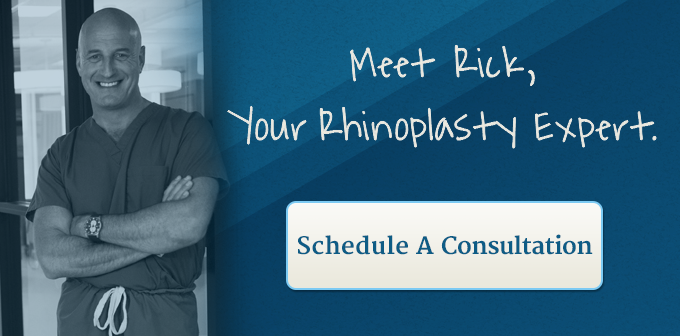There are a lot of variables to consider as you decide whether to move forward with an NJ rhinoplasty. A rhinoplasty can improve a wide range of issues related to the nose, but it’s important to make an informed decision.
By researching the treatment in advance, you can learn about what to expect from your NJ rhinoplasty experience and gain confidence about the road ahead. What follows is an overview of an NJ rhinoplasty: preoperative consultation, surgery preparation, post-operation care, procedure risks and rhinoplasty FAQs.
Preoperative Consultation
The preoperative consultation is one of the most important parts of an NJ rhinoplasty. During your consultation, you will meet with your surgeon and discuss your medical history, your current health and your goals for treatment. With all of this on the table, you two will work together to decide whether a rhinoplasty is right for you.
It’s important for both you and your surgeon to be open and straightforward during this rhinoplasty consultation. You may find it beneficial to prepare questions. Don’t hesitate to ask as many questions as you see fit, such as:
- How much experience does the surgeon have?
- What should I do to facilitate a positive outcome?
- Are before and after photos available?
The preoperative consultation is a crucial part of the treatment process. You want to be certain that an NJ rhinoplasty is the right choice for you, so do as much research and ask as many questions as you want. Your surgeon should be willing to take the time to explain the process and to resolve your doubts.
Before the Operation
If you decide to schedule a rhinoplasty, then during your pre-operative consultation your surgeon will give you some instructions to follow in the lead-up to the operation. Instructions generally include avoiding alcohol, smoking, and certain medications.
As an additional precaution, it’s recommended that you notify your employer about your operation, as you may need to take a few days off from work. You should also ask a friend or family member to drive you home and stay with you the day of the procedure for safety reasons.
If you have any further questions about what you should do to prepare for your NJ rhinoplasty, your surgeon will be glad to answer them.
NJ Rhinoplasty Procedure
While the exact steps of your NJ rhinoplasty will vary depending on the details of your case, the process is generally the same.
It begins with anesthesia. Once you are protected from pain, for an open rhinoplasty, your surgeon will make an incision across the columella, or the soft piece of tissue that separates the nostrils. Then, he or she will adjust the shape of the nose according to your preferences. This may involve taking a bone or cartilage graft from elsewhere in the body.
Once the nose is properly shaped, your surgeon will close the incision and protect the nose with gauze and possibly a splint. Then you will be taken to a room to rest, and your recovery will begin.
After the Operation
NJ rhinoplasty is almost always an outpatient procedure, meaning that you will be allowed to go home the day of the operation. Before you leave, you will be given instructions for caring for your nose while it heals. If you pay careful attention to the postoperative instructions, your recovery is more likely to be fast and comfortable.
You can expect some pain, swelling and bruising in the days following your surgery. To minimize discomfort and promote healing, apply ice regularly and keep your head elevated. Most of your pain, swelling and bruising should go away within two weeks. In the early stages of your recovery from a rhinoplasty, you will have regular follow-up visits with your surgeon so that you can track your progress.
In order to protect your nose, your physical activity may be restricted for up to six weeks after your operation. Most patients return to feeling normal within just a few weeks after their operation; however, it can take up to a year for the swelling to go away completely.
Procedure Risks
As with any surgical operation, NJ rhinoplasty comes with the risk of complications. While experiencing some bleeding, pain, swelling and bruising are normal, there is the risk that these symptoms persist abnormally. In addition, there is a chance that you find it more difficult to breathe through your nose after a rhinoplasty.
You shouldn’t expect complications, but it’s important to acknowledge the possibility. Talk with your surgeon if you’d like to know how you can reduce your rhinoplasty procedure risk of complications.
NJ Rhinoplasty FAQs
Additional frequently asked questions about NJ rhinoplasty include:
- What is the cost of rhinoplasty?
- Is it safe?
- How should I care for my nose before and after the procedure?
- What if I’m not satisfied with the results?
Your surgeon and his or her team will be able to provide the best answers to these questions. Never hesitate to contact them at any point during your treatment and recovery.
NJ rhinoplasty is a great way to improve your breathing and to enhance the appearance of your nose. Remember that you can never do too much research. By reading articles like this and discussing your options with your doctor, you can make a confident and informed decision about your health.


